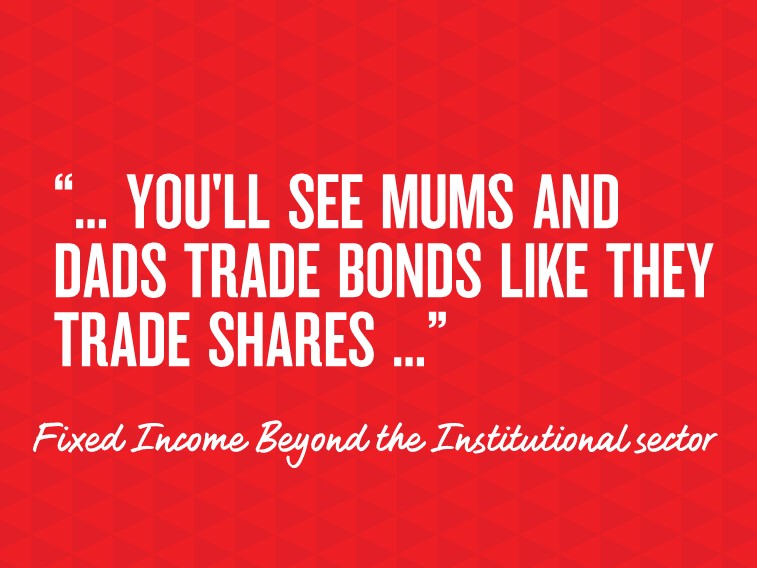Robust growth for online retail sales observed in June


Insight
The bond market has long been opaque, with bonds traded in parcels far too large for the average investors, but what might a more accessible bond market look like?

It’s a question pondered by panellists at the recent KangaNews-NAB Fixed Income Beyond the Institutional Sector Summit in Sydney. The session, the democratisation of the bond market – how will companies source funding in the future? considered what this could mean for issuers and investors.
The session looked at different segments of the bond market, each of which has grown strongly in recent years.
Issuance of subordinate debt securities (Sub Debt) is set to surge in coming years as banks fulfil new liquidity requirements for tier 2 capital from the prudential regulator.
One fund manager estimated that new Sub Debt and reissuance of existing Sub Debt will hit between A$82 billion to A$86 billion over the next four-and-a-half years – or about A$18 billion to A$19 billion a year.
“It’s terrific for all of us on the panel because we get this tsunami of supply. Tremendous choice, we can trade these bonds in any currency, hedge them back to Aussie dollars,” he said.
The fund manager expects more retail money could come into the Sub Debt market. However, he said the ASX’s bonds clearing house Austraclear would need to reduce its minimum parcel size from A$500,000 to A$10,000. “If we saw that, which is the minimum parcel size in other clearing houses around the world, I think you’ll see mums and dads trade bonds like they trade shares,” he said.
Additionally, more transparency over pricing is needed to make Sub Debt more appealing to retail investors.
As things currently stand, these securities will mostly continue to be traded over the counter rather than via exchanges, he said.
High yield bonds have come to the fore in the wake of the global credit crisis as banks have opened up their lending books to other investors to meet more stringent capital adequacy requirements from regulators.
These bonds come with a higher yield because they’re typically issued by small ASX-listed companies and don’t carry an investment rating. They also meet the need of smaller companies to have a smaller pool of capital that sits between equity and bank debt.
They’re also bespoke financial products and there are a large number of them “It becomes much more complicated to know exactly which one you’re buying, how it’s structured the core feature, which could burn you,” a fund manager said.
As a result, only high net worth individuals will access the market directly and other investors will have to mitigate their risk by accessing a diversified pool of bonds via a fund manager. Additionally, banks and issuers would probably not feel comfortable giving retail investors access to a product which they mightn’t understand.
Residential mortgage-backed securities (RMBS) – pools of individual residential mortgages consolidated into a single security – generally pay a much higher yield.
One fund manager described them as “great value”, telling the panel a BBB-rated RMBS would currently carry a yield of about 5.1%. Additionally, there’s no structural deficiency where other types of debt might rate higher than the RMBS and a AUD$500 million RMBS is collateralised by AUD$800 million worth of property.
The fund manager expected banks would continue to play their central role in RMBS issuance, but they might outsource some of the credit assessment for mortgages to fintechs who can do this very efficiently.
However, in terms of new buyers, each RMBS is generally worth about $500,000 which will put them out of reach of retail investors and the market will be left to wholesale investors.
Exchange traded funds (EFTs)– a diversified portfolio of securities constructed using an index approach that can be readily traded on the Australian Securities Exchange – are “undergoing a revolution”, the audience heard.
A large number of ETFs in categories including floating rate, cash, duration and government bonds have been launched and are appealing strongly to the do-it-yourself sector of retail investors.
The fund manager predicted that over the counter bonds will become more divisible into smaller parcels and will be traded on platforms, in much the same way the equities are traded today.
© National Australia Bank Limited. ABN 12 004 044 937 AFSL and Australian Credit Licence 230686.